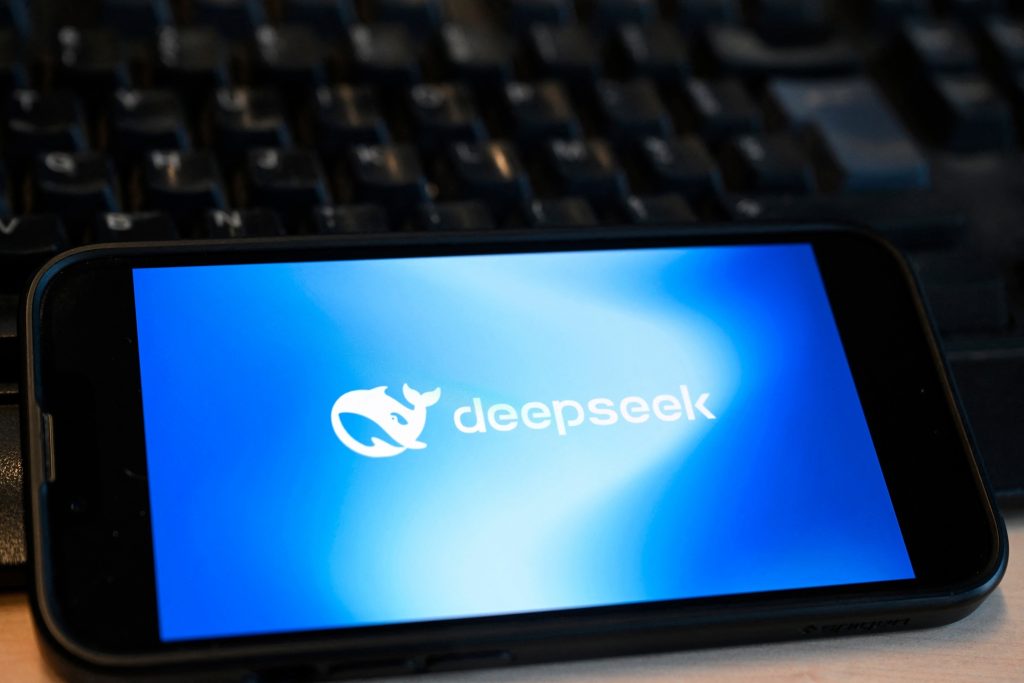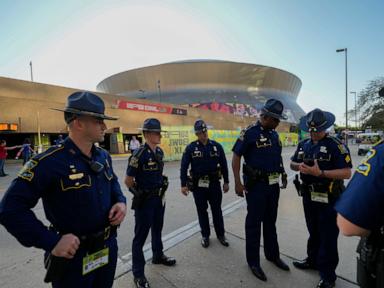
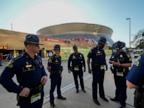

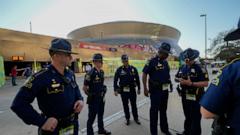
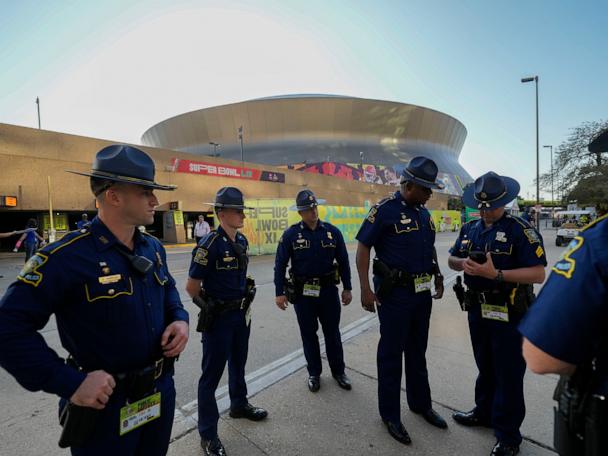
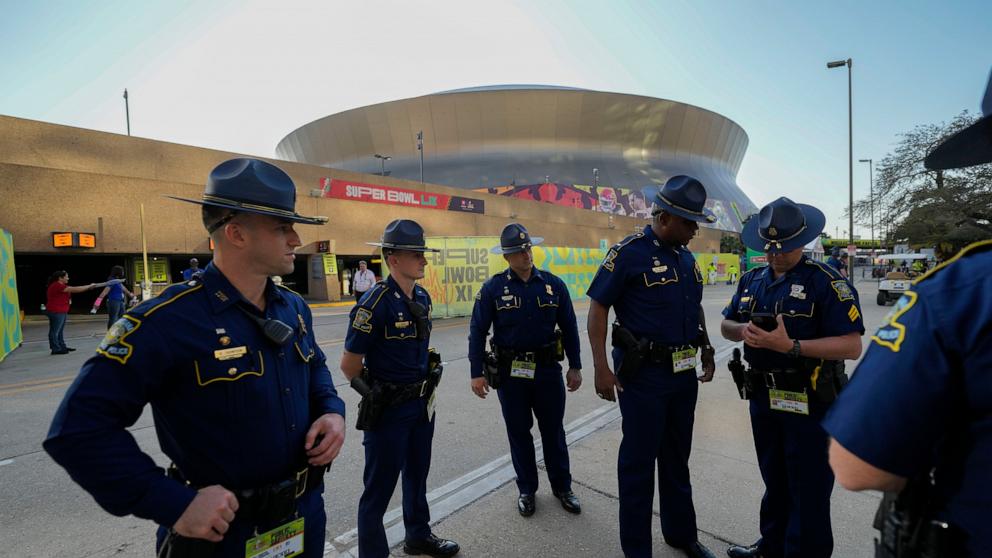
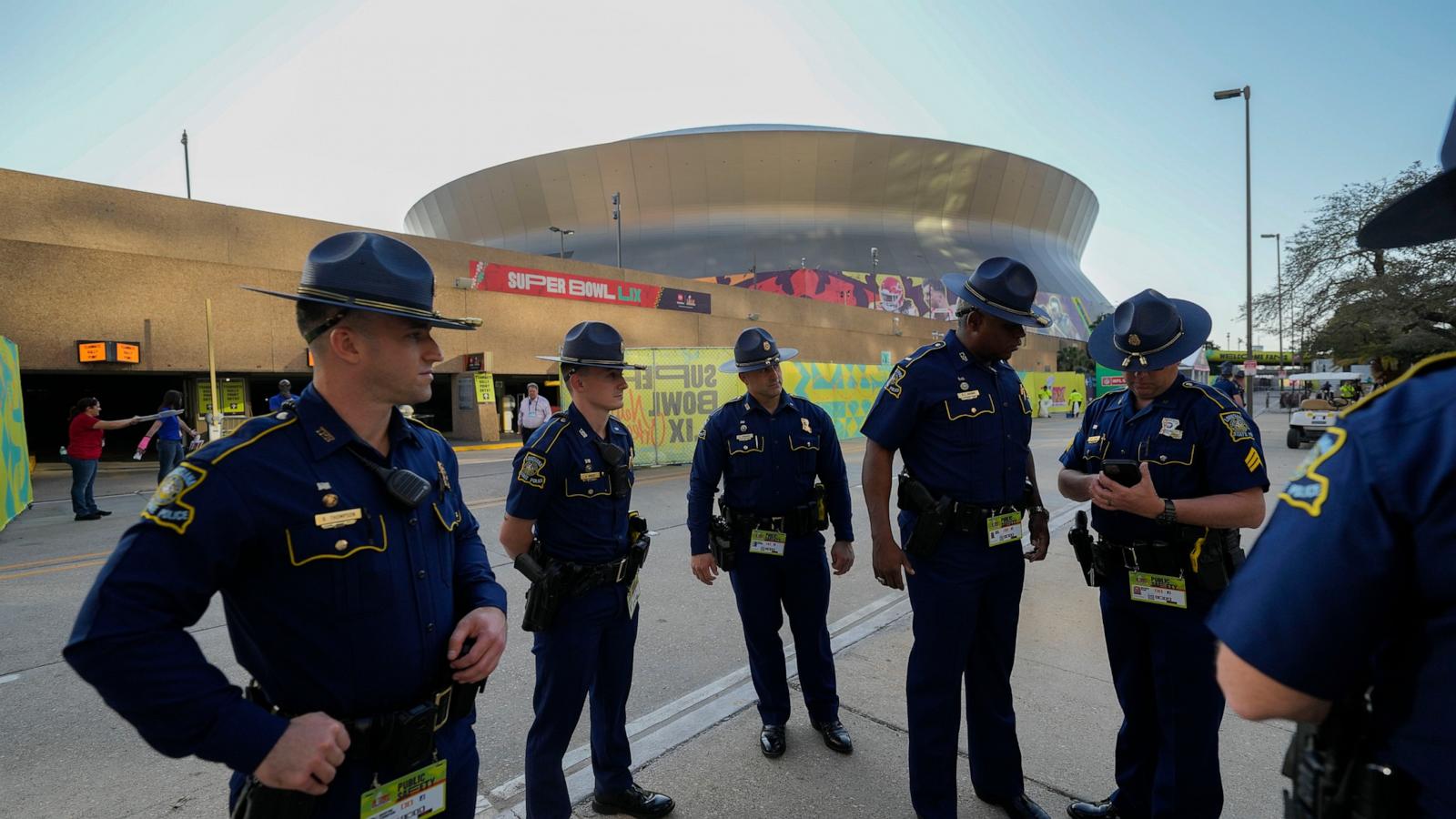
NEW ORLEANS — The anticipation surrounding Super Bowl LIX in New Orleans is not just about which team will win, it’s whether or not the city can pull the game off without a serious security breach.
New Orleans has hosted 10 Super Bowls in previous years, but Sunday’s game at the Superdome is different. Just over a month before Sunday’s kick-off, the city was the target of a terrorist attack on New Year’s Day in which a driver racing down Bourbon Street killed 14 people, injured 57 others, and heightened fears among locals that the city is unprepared for the estimated 100,000 visitors expected to arrive this week.
“New Orleans never had a reputation as a high target type place” for terrorism, “it was always ‘the Big Easy,'” said Eric Cook, executive chef and owner of St. John, a restaurant in the city’s Central Business District that is just a short walk from the stadium. The attack, he said, “really made everyone realize we’re all vulnerable at any time. I have concerns about it, I really do.”
Security concerns were heightened this week after President Donald Trump announced he is planning to attend the game, a first for any sitting president.
NFL Chief Security Officer Cathy Lanier said the NFL changed its security plan since the attack and is “constantly monitoring what is going on in the environment and security worlds” in the days leading up to the game. She said more than 2,700 state, federal, and local law enforcement will be present in and around the Superdome and private drones are prohibited. She declined to talk in specific about other measures the league is taking, citing security concerns.
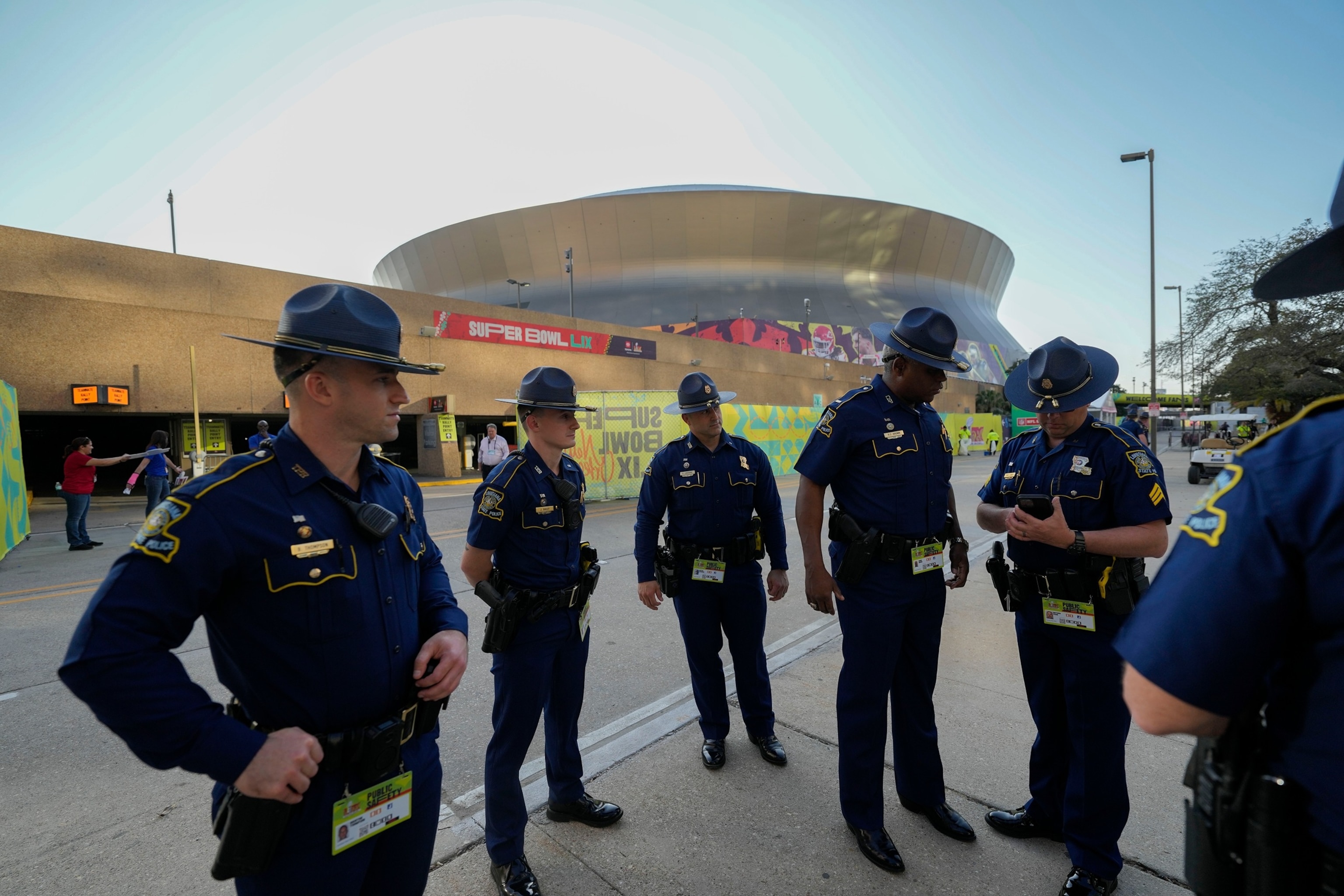
Louisiana State Police assemble outside the Superdome, Feb. 3, 2025, in advance of the upcoming Super Bowl to be played, Feb. 9th, in New Orleans.
Gerald Herbert/AP
In the weeks following the Bourbon Street attack, the FBI gave the game a Special Event Assessment Rating (SEAR) 1 rating, “defined as a significant event with national and/or international importance that requires extensive federal interagency support,” according to a threat assessment the agency released in late January.
The FBI said the game, along with days of activities leading up to kick-off, make it “an attractive target for foreign terrorist organizations, homegrown violent extremists, domestic violent extremists, lone offenders, hate crime perpetrators, and those engaged in other reportable targeted violence due to their potential to cause mass casualty incidents and draw attention to ideological causes.”
The report warns that a copycat attack is possible since “vehicle ramming has become a recurring tactic employed by threat actors in the west.” Other factors contributing to the threat environment is unrest in the Middle East, the high number of pre-game events in the city, the use of unauthorized unmanned aircraft systems, and the potential of cyberattacks “designed to facilitate short-term financial gain or highly visible, symbolic disruptions.”
Eric DeLaune, a special agent in charge of Homeland Security Investigations in New Orleans, is tasked with coordinating federal efforts around the Super Bowl. “In the days ahead, there will be a significant increased law enforcement presence in New Orleans, some of which will be visible and obvious,” he told reporters Monday.
A congressional delegation led by Alabama Rep. Dale Strong, the chair of the House Homeland Security Subcommittee on Emergency Management and Technology, this week toured the site of the Bourbon Street attack and the Superdome before a briefing by the NFL and law enforcement officials.
“This tragedy could happen in any state, any city—that is why it is so important that we invest in local law enforcement and give them the capabilities they need to prevent crimes before they happen,” Strong said in a statement
Guns allowed, but not coolers
The Bourbon Street attack triggered a state of emergency from the state, which Gov. Jeff Landry followed up weeks later with an executive order that established a wide security perimeter around Bourbon Street, from Canal to St. Ann Streets and Royal to Dauphine Streets. Coolers and ice chests are prohibited and bag checks conducted by the Louisiana State Police will start Wednesday at every entry point leading to Bourbon Street.
For French Quarter residents like Glade Bilby, who has called the neighborhood home for more than 40 years and is president of French Quarter Citizens, a non-profit that focuses on quality of life issues, the added security is “welcome.” He said, however, the security focus on Bourbon Street is limiting.
Another attack “could happen anywhere,” he said. “If this happened on Barracks, Gov. Nichols, it still affects the French Quarter which is an international brand. If you’re really intent on doing evil, you’ll be able to do it no matter what.”
Bilby is among many here who have been vocal all week about the contraction established by Landry which prohibits coolers into the security perimeter while state law allows people to carry in firearms without a permit. “That’s very problematic. It ties one hand behind law enforcement’s back,” Bilby said.
When Landry took office last year, he signed into law legislation to allow for the carrying of a concealed handgun without a permit or training. He rejected pleas from lawmakers in New Orleans to make the French Quarter and other entertainment districts in the city exempt. That means, according to Metropolitan Crime Commission President Rafael Goyeneche “there’s nothing that can be done legally with respect to people bringing firearms into the French Quarter.”
If law enforcement discovers a checked bag contains a handgun, “they have no recourse but to let them walk into the French Quarter, and that poses a real threat,” Goyeneche told WWL radio last month.
Landry’s office did not immediately respond to ABC News’ request for comment. He has not commented on rejecting the carve-out on his gun legislation for the French Quarter but said upon signing the gun bill: “It’s fundamentally clear—law-abiding citizens should never have to seek government permission to safeguard themselves and their families.”
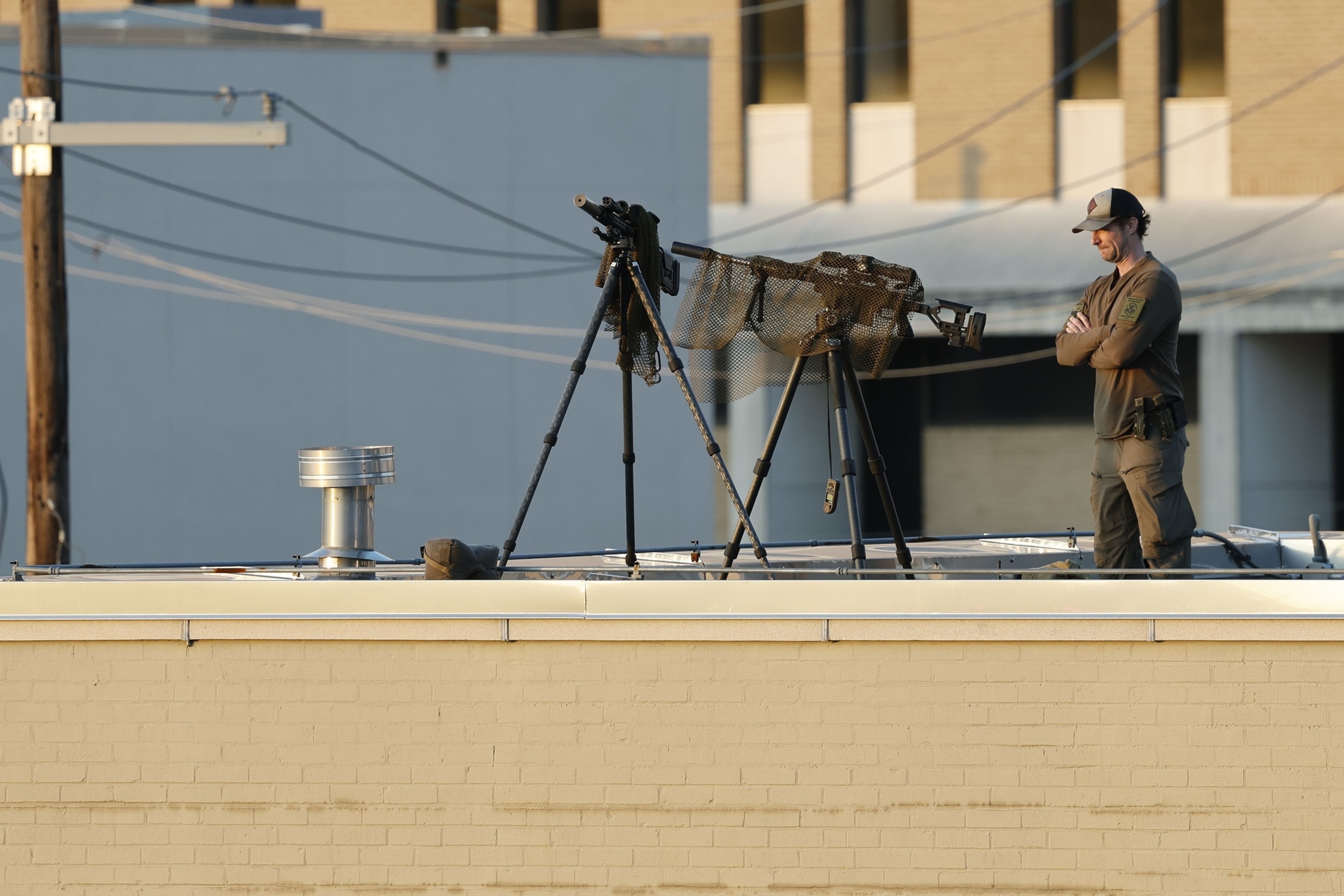
A law enforcement officer takes a high position on a building across from the Caesars Superdome during the National Football League’s Super Bowl LIX Opening Night event at Caesars Superdome in New Orleans, Feb. 3, 2025.
Erik S Lesser/EPA/Shutterstock
New Orleans City Councilmember Joe Giarrusso said the city will continue to advocate to state lawmakers that an exception should be made to prohibit conceal carry in the French Quarter because the environment is so unique.
“You have so many tourists packed into a small space and we’re encouraging people to drink alcohol inside and outside. That’s the ethos of what is going on there,” he said. “Alcohol and guns don’t mix. This is not a partisan issue.”
Investigations pending
Besides the refusal to carve out the French Quarter as a gun-free zone, concerns remain that the city hasn’t learned a lesson from the security gaps that safety officials have said made it easier for Shamsud-Din Jabbar, a U.S.-born citizen from Texas, to drive a truck for at least three blocks in the early morning of New Year’s Day.
Two investigations — one by the city council and a second launched by Louisiana Attorney General Liz Murrill — are looking into why protective columns designed to block vehicle traffic were removed and why other anti-vehicle barriers were not deployed.
“The People of Louisiana deserve answers,” said Murrill. “We are committed to getting a full and complete picture of what was done or not done, and more importantly, what needs to change so we can prevent this from ever happening again.”
New Orleans Police Superintendent Anne Kirkpatrick told the city council she hired former New York Police Commissioner William J. Bratton to serve as a consultant to investigate the security lapses.
Bratton did not immediately respond to ABC News’ request for comment on the investigation.
Still, for all the promises and pending investigations and final reports, the big game will still proceed Sunday. Cook said an outcome without a major safety incident will be critical for businesses like his own that saw traffic drop following the New Year’s Day attack.
“We hope the success of this weekend will generate more trusting folks to come down here and visually see that New Orleans is open for business and we’re safe and we’re prepared,” Cook said.
Giarrusso admitted that New Orleanians are “weary and wary” but have no choice but to move forward.
“The whole point of terrorism is to prevent people from doing what in free society people are allowed to do,” he said. “We have to find a sweet spot of finding reasonable safety protection for people and ensuring we’re leading our lives the way we’re supposed to.”

